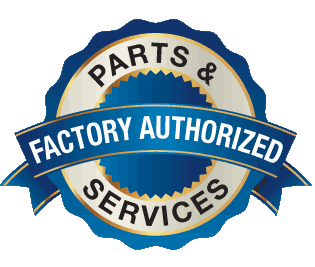
How to prep your home before leaving for vacation
A family vacation is typically a highly anticipated event involving a lot of activities. The last thing you’re probably worried about is how your HVAC system will run while you’re gone. However, if you take just a few minutes to prep before leaving by following these tips, you’ll have peace of mind that everything will run smoothly in your absence.
Check out the following tips to ensure you save as much energy (and money) on your home so you can enjoy your vacation worry-free!
Set the temperature for energy savings
When leaving on vacation, consider the length of the trip. For example, if the vacation is just for a few days, you can leave the air conditioner turned on. However, you should set the temperature higher when leaving by turning up the thermostat.
Suppose you have a programmable thermostat and you’re leaving for vacation during summer. In that case, set the temperature to around 85 degrees. Then, a day before getting back, program it to return to your normal temperature.
Before setting the temperature on your thermostat, you’ll want to factor in whether or not there will be any pets left at home, if there will be someone who will be left to watch on the house and the level of heat in the area. In case of any of these, you should set the thermostat at a temperature level suitable for them.
In the case of a manual thermostat, turn up the temperature in the summer to prevent energy waste but leave the air conditioner on, as it keeps the air in circulation to prevent condensation. The condensation would affect cabinets and all wooden structures. When you are leaving for vacation during winter, the thermostat should be turned down but not entirely off to prevent the pipes from freezing.
Check the air filter (and replace if needed)
During the vacation, there will likely be no one in the house to carry out maintenance routines daily. Therefore, the chances of dust building up are high, leading to clogged air filters. This also results in lower air quality and increases the energy bill. To prevent this from occurring, replace the air filter after every 1 to 3 months. This will also help save money on your energy bill.
Turn off the water supply (except in winter)
Though technically not related to your home heating and cooling system, turning off the water supply before leaving for vacation is another way to help in saving energy.
For example, in the Houston area, it’s a typical design to position hot-water tanks in the attic area of the house. As a result, it can cause a lot of damage in case of any leakages. Therefore, you should close all the main supply valves to the house to prevent this from happening. Closing the water supply also prevents any possible damage caused by leakages and saves on energy bills.
During winter, significant drops in temperatures can result in pipes freezing and bursting. Therefore, you shouldn’t shut off the water during a winter vacation since the still water is at a higher risk of bursting than running water. Instead, set the water pump on vacation mode or at the lowest setting to help conserve both water and energy. This is also an environmentally-friendly practice.
Turn off all lights and unplug appliances
To save on electricity during the vacation, make sure to turn off all the lights in the household. For all the other electrical appliances that have a “stand-by mode,” such as television sets, you should unplug them since they still consume energy even when you turn them off.
Clean and dust
Before leaving for vacation, vacuum and clean the entire area surrounding the HVAC. This helps the HVAC system operate at maximum efficiency by preventing the accumulation of dirt on the filters.
Outside, the yard should also be kept tidy by trimming trees, bushes and leaves that might block the outside fan or unit. Trim loose branches around the outdoor unit to allow proper airflow.
Other pre-vacation task tips:
- If you’ll be on vacation for longer than a month, you should remove all the perishable food from the fridge and put it in the freezer.
- Check on the batteries of your alarm systems (including your smoke alarm) and replace them if needed.
- Install a surge protector as a precautionary measure. This saves you the cost of possibly replacing your HVAC system and other electrical devices that a power surge may destroy.
 Read reviews
Read reviews








